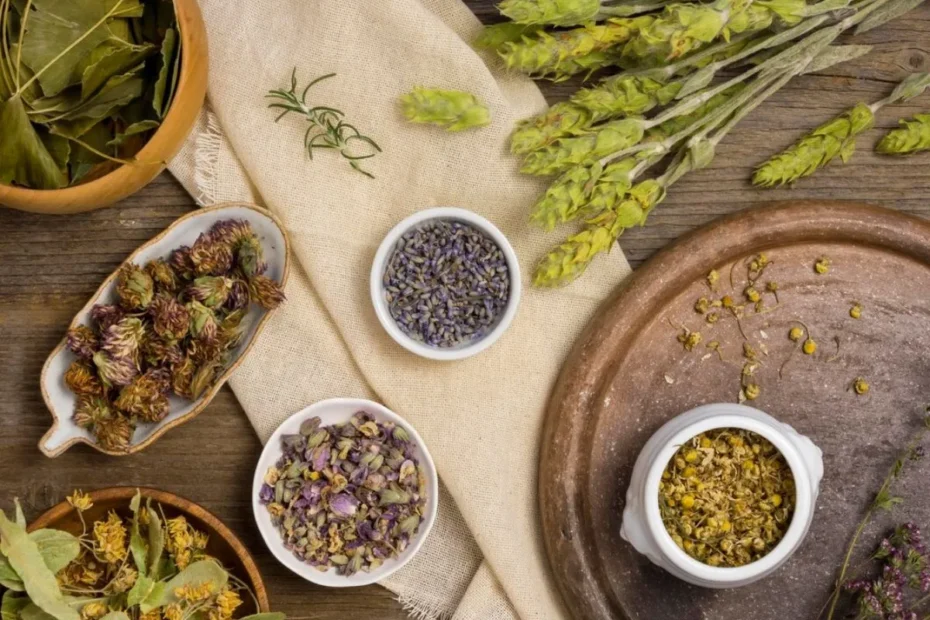Herbs and natural remedies in equine diets are becoming increasingly popular in enhancing horse health. These remedies provide a holistic approach that complements traditional veterinary practices.
Incorporating herbs allows horse owners to address various health issues naturally. Alternative medicine is gaining traction in equine care.
This article explores the benefits of using herbs and natural remedies in equine diets. Understanding these benefits can improve your horse’s overall wellness.
The Importance of Herbs in Equine Diets
Herbs have been used for centuries in traditional medicine. This practice extends to the animal kingdom, particularly in equine care.
Integrating herbs into a horse’s diet can support various health aspects. This includes digestion, immune support, and joint health.
Complementing their diet with herbs offers a natural way to enhance health. Let’s explore some commonly used herbs.
Commonly Used Herbs in Equine Diets
Several herbs are widely recognized for their benefits in equine diets. These herbs can address different health needs.
- Garlic: Known for its antioxidant and immune-boosting properties.
- Turmeric: Offers anti-inflammatory benefits.
- Chamomile: Helps with digestive issues and stress relief.
- Ginger: Aids in digestion and reduces nausea.
These herbs offer benefits that make horse care more effective. They can be easily added to the horse’s regular diet.
Benefits of Garlic in Equine Nutrition
Garlic is a well-known herb in equine diets, praised for its ability to enhance the immune system. Its natural compounds support overall health by boosting the horse’s defenses and promoting resilience against illnesses. Incorporating garlic into the diet can contribute to a stronger and more robust immune response.
Garlic has potent antibacterial properties, helping to fight infections and support respiratory health. Its ability to combat harmful bacteria and promote respiratory wellness makes it a valuable addition to the diet. This herb assists in maintaining a healthy respiratory system and overall well-being.
Incorporating garlic can also deter pests like flies, making it valuable for horses kept outdoors. Its natural repellent properties help reduce the presence of bothersome insects, contributing to a more comfortable environment for outdoor horses. This additional benefit complements garlic’s health-promoting effects.
Role of Turmeric for Joint Health
Turmeric is renowned for its anti-inflammatory effects, making it ideal for managing joint health in horses. Its properties help reduce inflammation, which can be particularly beneficial for horses with joint issues or arthritis. Including turmeric in the diet supports overall joint health and comfort.
Curcumin, the active compound in turmeric, reduces inflammation and helps manage conditions like arthritis. By targeting inflammation, curcumin contributes to pain relief and improved joint function, enhancing your horse’s quality of life. This natural remedy complements other treatments and supports ongoing health.
Add turmeric to your horse’s diet to promote joint flexibility, which enhances mobility and overall well-being. Incorporating turmeric regularly helps maintain healthy joints and supports an active lifestyle. This natural supplement contributes to a more comfortable and agile horse.
Holistic Approaches to Horse Care
Adopting holistic horse care involves more than just diet, as it includes overall management practices that support health. This comprehensive approach addresses various aspects of a horse’s well-being, ensuring a balanced lifestyle that promotes long-term health and vitality.
Holistic care emphasizes natural remedies, which can reduce reliance on synthetic medications. By incorporating natural treatments, you support the body’s own healing processes and potentially minimize side effects associated with conventional drugs. This approach aligns with a more natural and sustainable method of horse care.
Combining herbs with other natural practices can optimize health, helping to keep horses healthier and happier. Integrating these practices into daily routines supports overall well-being and enhances the effectiveness of both herbal and traditional treatments. This balanced approach fosters a healthier, more vibrant life for your horse.
Natural Remedies for Equine Wellness
Various natural remedies can benefit equine health. These include essential oils and dietary supplements.
- Aloe Vera: Useful for skin irritations and digestive health.
- Apple Cider Vinegar: Supports digestion and acts as a detoxifier.
- Flaxseed: Rich in omega-3 fatty acids for coat health.
Incorporating these remedies supports holistic care. They provide natural solutions for common health issues.
Traditional vs. Alternative Medicine in Equine Care
Traditional veterinary medicine focuses on treating symptoms, while alternative medicine aims to address root causes. Each approach has its strengths, and integrating them can offer a more comprehensive care plan for your horse. This combination ensures that both immediate symptoms and underlying issues are addressed effectively.
Combining both approaches can be effective, providing a balanced and thorough treatment strategy. This method allows for the management of symptoms while also working on the root causes, offering a holistic approach to equine health. The integration of traditional and alternative practices can enhance overall well-being.
Herbs and natural remedies bridge the gap between these practices, offering safe and natural health solutions. By incorporating these remedies, you complement traditional treatments with holistic options that support your horse’s health in a natural way. This approach provides additional benefits and enhances overall care.
Incorporating Herbs into Equine Diets
Adding herbs to equine diets requires careful consideration, ensuring they are used appropriately. Properly integrating herbs involves understanding their effects and ensuring they complement the horse’s overall diet. This approach helps in achieving the desired health benefits while avoiding any potential issues.
Consult with a veterinarian before introducing new herbs, as this ensures they are safe and effective for your horse. A veterinarian can provide guidance on which herbs are suitable and how to use them properly. This professional advice helps in preventing adverse reactions and ensures the herbs contribute positively to your horse’s health.
Start with small quantities to observe any reactions, and gradually increase the dosage as recommended. Monitoring your horse’s response to the herbs allows you to make necessary adjustments based on their individual needs. This careful approach ensures the herbs are introduced safely and effectively, maximizing their benefits.
Proper Dosage and Administration
Each herb has specific dosage guidelines, so follow these to avoid adverse effects. Adhering to recommended dosages ensures the safe use of herbs and prevents potential issues. Accurate dosing is crucial for maximizing the herbs’ benefits while minimizing any risks associated with incorrect use.
Herbs can be administered in various forms, including fresh, dried, or as supplements. Choosing the appropriate form based on the herb and the horse’s needs helps in achieving the best results. Each form has its own advantages and can be used effectively depending on the specific situation and desired outcome.
Proper administration ensures the herbs’ efficacy, which maximizes their health benefits. Consistent and correct use of herbs helps in delivering their therapeutic effects effectively. This approach supports overall health and well-being, making sure the herbs contribute positively to your horse’s care.
Monitoring Health Changes
Track any health changes after introducing herbs, as this helps assess their effectiveness. Observing your horse’s behavior and physical condition provides valuable insights into how well the herbs are working. Keep detailed records of any improvements in targeted health areas and any noticeable changes in overall well-being. This documentation helps in evaluating the impact of the herbs over time and adjusting the approach as necessary.
Regular monitoring ensures the herbs are beneficial and allows for timely adjustments. Observe your horse’s response to the herbs, including changes in energy levels, appetite, and overall behavior. Based on these observations, adjust the diet to enhance effectiveness and address any new or ongoing issues. This proactive approach ensures that your horse’s health plan remains effective and supportive of their needs.
Adjust the diet as needed based on observations to maintain optimal health and performance. Continually assess how the herbs are impacting your horse’s condition and make necessary changes to their diet or herbal regimen.
Regular updates to the diet can help address any emerging needs or imbalances, ensuring that your horse receives comprehensive care that adapts to their evolving health status.
Combining Herbs with Regular Diet
Herbs should complement, not replace, a balanced diet, ensuring your horse’s diet includes all essential nutrients. A diet that provides all the necessary vitamins, minerals, and proteins supports overall health and performance. Herbs can be a beneficial addition, enhancing specific aspects of health without substituting fundamental nutritional needs.
Consult a nutrition expert for a comprehensive diet plan that may include herbs and supplements. A tailored plan ensures that all dietary requirements are met while integrating natural remedies effectively. The expert can guide you in selecting the right herbs and adjusting the diet based on your horse’s individual needs.
A balanced diet ensures overall health and well-being, with herbs enhancing but not substituting essential nutrition. Proper nutrition forms the foundation of health, and herbs can provide additional support. Combining a well-rounded diet with targeted herbal supplements promotes optimal health and performance.
Enhanced Equine Health Through Natural Remedies
Herbs and natural remedies can significantly improve equine health, offering natural solutions for common health issues. By incorporating these remedies, you support a holistic approach to horse care, which can result in healthier, happier horses. Natural treatments often address underlying issues and promote overall well-being, complementing traditional veterinary care.
Using herbs promotes a holistic approach to horse care, which enhances the horse’s quality of life. Regular use of herbal supplements can improve digestion, boost immunity, and support joint health. It’s essential to choose high-quality herbs and consult with a professional to ensure they are suitable for your horse’s specific needs.
Incorporate herbs and natural remedies to enhance health, and always consult experts to tailor the best diet for your horse. A knowledgeable specialist can provide guidance on effective herbs and appropriate dosages.
Combining these natural remedies with a balanced diet and regular veterinary care supports optimal health and performance.
Frequently Asked Questions
What herbs are beneficial for equine diets?
Common herbs include garlic for immunity, turmeric for inflammation, and chamomile for digestion.
Are there any risks in using natural remedies?
Yes, improper use can lead to adverse effects. Always consult a veterinarian before introducing new herbs.
How often should herbs be added to the diet?
It varies based on the herb and health needs. Follow recommended dosages and consult an expert.
Can herbs replace traditional medicine?
No, they should complement traditional treatments. Combining both can provide comprehensive care.
How do I monitor my horse’s reaction to herbs?
Observe any health changes and consult a veterinarian. Keep track of improvements or adverse effects.

